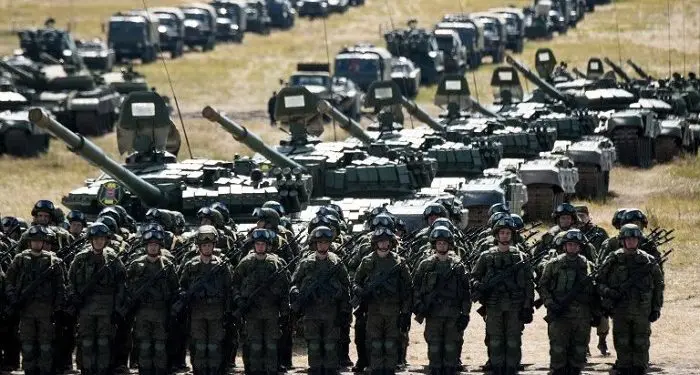By: Holly Ellyatt
Russia as we know it may not survive the coming decade and risks becoming a failed state as it pursues its costly war in Ukraine, according to a survey of global strategists and analysts, transmits CNBC.
The Atlantic Council’s Scowcroft Center for Strategy and Security polled 167 global strategists and practitioners last fall on the biggest prospective drivers of geopolitical, societal, economic, technological and environmental change. Respondents comprised primarily men and workers in the private sector, academia, non-profit organizations, as well as independent consultants or freelancers.
One of the poll’s most surprising takeaways, according to the Atlantic Council, was that respondents pointed to a potential Russian collapse over the next decade. This was “suggesting that the Kremlin’s war against Ukraine could precipitate hugely consequential upheaval in a great power with the largest nuclear-weapons arsenal on the planet,” the U.S. think tank noted in the Monday report.
Around 46% of survey respondents expected Russia to become a failed state or break up by 2033. Separately, roughly 40%of respondents expected Russia “to break up internally for reasons including but not limited to revolution, civil war, or political disintegration.”
European respondents were found to be more cynical about Russia’s near-term prospects, with 49% predicting a disintegration scenario. Comparatively, just 36% of American respondents — who represented around 60% of all experts surveyed — expressed similar beliefs.
The survey comes as Russia’s war on Ukraine shows no sign of ending soon.
Almost a year into its invasion, Russia has inflicted an immense amount of death, damage and destruction. Kyiv’s economy is expected to have shrunk more than 30% in 2022, according to the latest estimates from Ukraine’s economy ministry.
Last September, the Ukrainian government, European Commission and World Bank, estimated that the cost of reconstruction and recovery in Ukraine amounted to $349 billion. The figure is now likely much higher, as the war continues into 2023. Ukraine’s allies have called for Russia to foot the bill for Ukraine’s reconstruction.
Geopolitical analysts agree that Russia has deeply harmed itself by pursuing territorial gains in Ukraine, alienating many members of the international political, trade and business community and increasingly relying on rogue states like Iran and North Korea for partnerships and arms.
Moscow has also lost much of its share of the European energy client base to self-censorship and sanctions. Multiple Russian officials, entities and industries are now operating under Western restrictions.
Russian President Vladimir Putin is widely seen to have misjudged the invasion of Ukraine, assuming a quick collapse of the Kyiv forces and administration. Instead, Ukrainian resistance has cost Moscow several humiliating defeats on the battlefield, although Russian military still occupies a swathe of territory to the east and south of Ukraine.
Experts have been closely watching the Kremlin for signs of willingness to turn the tide of war through nuclear deployment. Such an escalation has yet to progress beyond Russian saber-rattling. Analysts say Russia would likely stop short of using nuclear arms that could spur the West and the NATO military alliance into a direct confrontation. A nuclear recourse could even isolate Moscow from tentative allies and remaining oil buyers, like China and India.
Just 14% of the Atlantic Council poll respondents believed that Russia is likely to use a nuclear weapon within the next ten years.
“Among those expecting the country to experience both state failure and a breakup in the coming decade, a sobering 22 percent believe that use of nuclear weapons will be part of that history ten years hence,” the think tank noted.
It said that there was some hope that state failure in Russia, or a breakup over the coming decade, could lead to a positive outcome: “Of those who believe Russia is likely to experience state failure or a breakup over the coming decade, 10 percent think that it is the most likely of any currently autocratic country to become democratic by the end of this period,” the survey found.
















